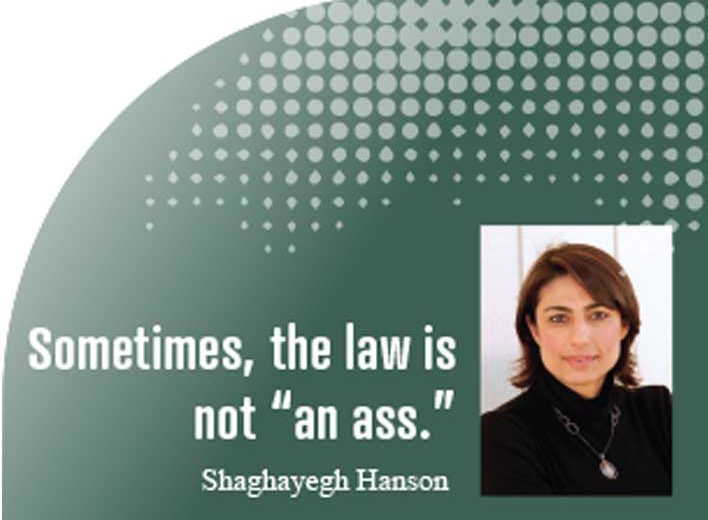Trump Can Still Run for President: Here’s Why
Shaghayegh Hanson
I was visiting family and friends in Canada when Donald Trump was convicted of 34 felonies by a jury in New York. The barrage of questions about whether this meant Trump could still run and be elected as president came fast and furious from the Canadians around me. My dad texted me from London: “Is it true he can still run?!” The answer was “Yes,” but even my legal training could not readily provide me with a full explanation of why that is the case. We are in somewhat unchartered territory—that is, our legal and political systems have never contemplated, or dealt with, a situation where a major U.S. political party’s presumptive presidential candidate is a convicted felon. (Nor has a former or sitting U.S. president ever been criminally convicted.)
First, what exactly was Trump convicted of? Trump was found guilty of falsifying business records—34 separate counts (acts) of invoicing, paying checks, and making ledger entries for fake “legal services,”1 which were in fact payments made by Trump’s former lawyer, Michael Cohen, to Stormy Daniels to keep her silent about her alleged sexual encounter with Trump prior to the 2016 presidential election.
Regardless, here’s why Trump can still run for president:
–The Constitution only requires a presidential candidate to be 35 years old, a “natural born” citizen, and to have lived in the United States for at least 14 years. There are no prohibitions against standing based on a criminal record or bad character. In fact, it has happened before; in 1920, Socialist Party presidential nominee Eugene Debs ran for the presidency from prison after being convicted of violating the Sedition Act for delivering an anti-World War I speech encouraging young men to resist the draft.
–States cannot set their own disqualification laws regarding who may run for president. In 2019, when California passed a law requiring presidential candidates to release their tax returns, the law was blocked by a federal court and the California Supreme Court found it violated the California Constitution. States only have power to set “time, place and manner” restrictions on general elections; they do not have authority to substantively change the law guaranteeing placement of the parties’ chosen nominees on the ballot.
–Even if Trump “engaged in insurrection or rebellion” under section 3 of the Fourteenth Amendment to the U.S. Constitution, the United States Supreme Court has declared that only Congress has the power to enforce section 3, and not, for example, Colorado’s Supreme Court or Maine’s Secretary of State, both of which have stated Trump is ineligible to run under section 3. With a Republican-controlled House of Representatives, Congress is unlikely to use section 3 against Trump.
–The Republican Party cannot replace Trump on the ticket because, based on the primary election results, there is no mechanism by which delegates can effectively nominate anyone else.
So, basically, the answer is complicated by law and politics. It is possible for the Republican Party to replace Trump after its convention, but with top Republicans embracing him for the role of president, that is also unlikely to happen. Which means it comes down to us, the electorate, to make the call on whether a convicted criminal should lead the so-called “free world.”
1- https://www.npr.org/2024/05/30/g-s1-1848/trump-hush-money-trial-34-counts



















